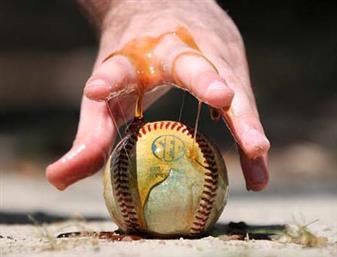Cheating To Win: Should Athletes Be Allowed To Bend The Rules?

Spygate. Deflategate. Bountygate. Interference in headsets. Corked bats. Boosters paying players. Steroid use. Pine tar. From full-blown scandals that date as far back as the 1919 Black Sox to minor offenses that simply bend the rules, there are too many accounts of cheating in sports to even keep track of!
Whether it’s something as small as a defensive lineman yelling out the offense’s signals to draw offensive linemen offsides or something as serious as blood doping, cheating is simply prevalent throughout all sports, at all levels and in many different degrees.
But should cheating — of any kind — be tolerated? Why do players feel the need to cheat in the first place?
It’s simple: athletes cheat to win. As the saying goes, “if you’re not cheating, you’re not trying.”
We play sports to win. It should be expected that players would blur the lines of fair play and push the limits to win, particularly at the professional level, where even the smallest advantage may make a huge difference. That’s called gamesmanship.
Besides, isn’t it the job of the rules and officials to govern the game? The job of an athlete is to do what it takes to win. And that means finding an advantage over the opponent.
After all, isn’t that why there are different forms of athletic equipment? More advanced equipment helps give players an edge, but it’s not considered cheating. Should shoes that make you run faster or jump higher be illegal? What about mouthguards that allow for better oxygen flow, increasing athletic performance?
Of course, cheating doesn’t have to be a malicious act toward another athlete or team. There are clearly different levels of cheating. Putting a little extra curve into your hockey stick or kicking your golf ball out of the rough is wildly different from trying to injure your opponent with an illegal hit.
But is there a difference between minor rule bending and flat-out breaking the rules? Or is all cheating the same? Should there be a level of integrity to our athletics that tolerates no cheating of any kind?
It’s hard to say and each case depends on your own personal moral code. While many of baseball’s Hall of Fame voters have taken it upon themselves to declare the players directly involved in the sport’s “steroids era” unworthy of the hall, they have voted in plenty of players who have bent the rules in other, seemingly more minor ways.
And while the idea of asterisks in record books has become a very common thought, it seems harsh to put a stigma on players who cheated one way instead of another.
In every other aspect of life, breaking the rules has serious consequences and punishments. People who break or bend the laws of society are looked down upon and are labeled as criminals. So why doesn’t that same mentality carry over to sports? After all, we are taught as children to play games and compete with honor and integrity.
But again, the job of an athlete is to win by finding an advantage right? Is cheating in sports a simple black and white discussion?
Cheating in sports is not all black and white … or is it? What do you think — are there different forms of cheating or is it all the same? Tell us what you think in the comments.
Enhance Your Performance, Legally




 Spygate. Deflategate. Bountygate. Interference in headsets. Corked bats. Boosters paying players. Steroid use. Pine tar. From full-blown scandals that date as far back as the 1919 Black Sox to minor offenses that simply bend the rules, there are too many accounts of cheating in sports to even keep track of!
Spygate. Deflategate. Bountygate. Interference in headsets. Corked bats. Boosters paying players. Steroid use. Pine tar. From full-blown scandals that date as far back as the 1919 Black Sox to minor offenses that simply bend the rules, there are too many accounts of cheating in sports to even keep track of!
